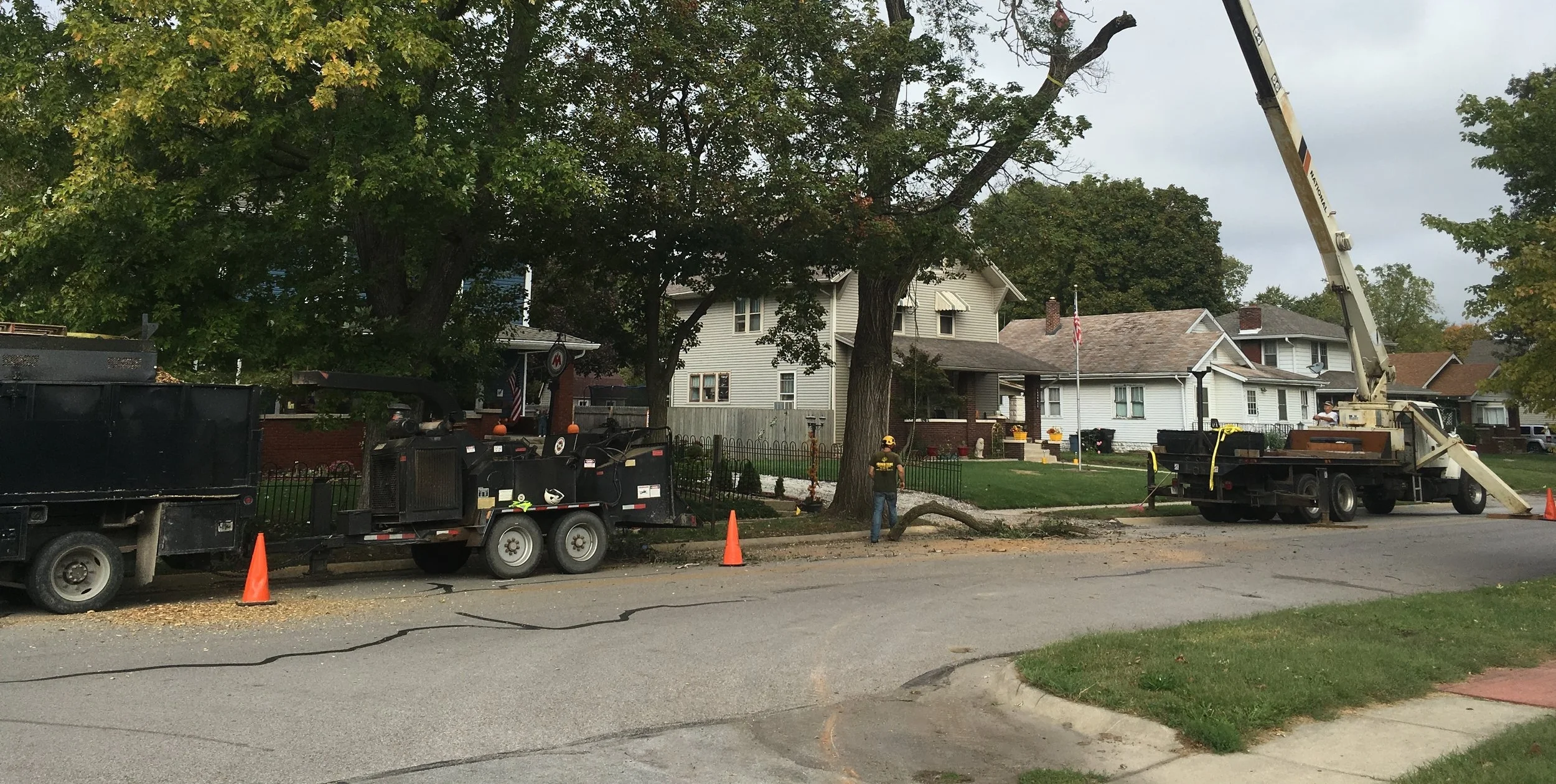Cicada Damage Control: What You Need to Know for Your Trees
/If you haven’t personally experienced them, you have no doubt heard about the 17 year cicadas that emerged this year. If you have experienced them, you might be wondering if they could have caused damage to your trees. “Overall, cicadas may be good for forests, which may experience a growth spurt the year after an emergence. Cicada emergence holes allow sunlight, air, water and nutrients to penetrate more rapidly and to greater depths into the soil than typically, according to Moore. In fact, the very presence of cicadas is a sign of a robust forest.” (Phys.org)
Despite this fact, cicadas may have caused damage to some trees. To make sure cicadas are the culprit, here are some things to look for. “You’ll see the little train track patterns on the side of the branches where the females actually laid their eggs. They’ll be in that branch for about a little over a month and then the nymphs will hatch and fall to the ground and go into the ground and come back in 17 years.” (WTOP) “If enough cicadas lay eggs on a small branch, it can kill the twig. As a result, large trees sometimes have minor dieback at the ends of branches but overall tree health isn’t affected. Small or young trees and shrubs, however, may be more seriously harmed.” (Purdue University)
To protect your trees from further damage, cover small newly planted bushes and trees with netting. “Larger trees may experience minor dieback at the tips of branches, but this will not harm the overall health of the tree. If you find these dead twigs unsightly, you can either trim them off or hire an arborist to remove them.” (Purdue University)
If you notice more than a few branches dying or more severe damage, you may be in need of an inspection by a certified arborist to ensure there is nothing more serious going on.
Browning Tree Service employs Joshua Browning ISA certified arborist license #KY-9849A who is a proud member of Indiana Arborist Association and International Society of Arboriculture, serving the West Lafayette and Lafayette, Indiana area!
Resources:
https://phys.org/news/2021-05-year-cicadas-tree-expert-brood.html










